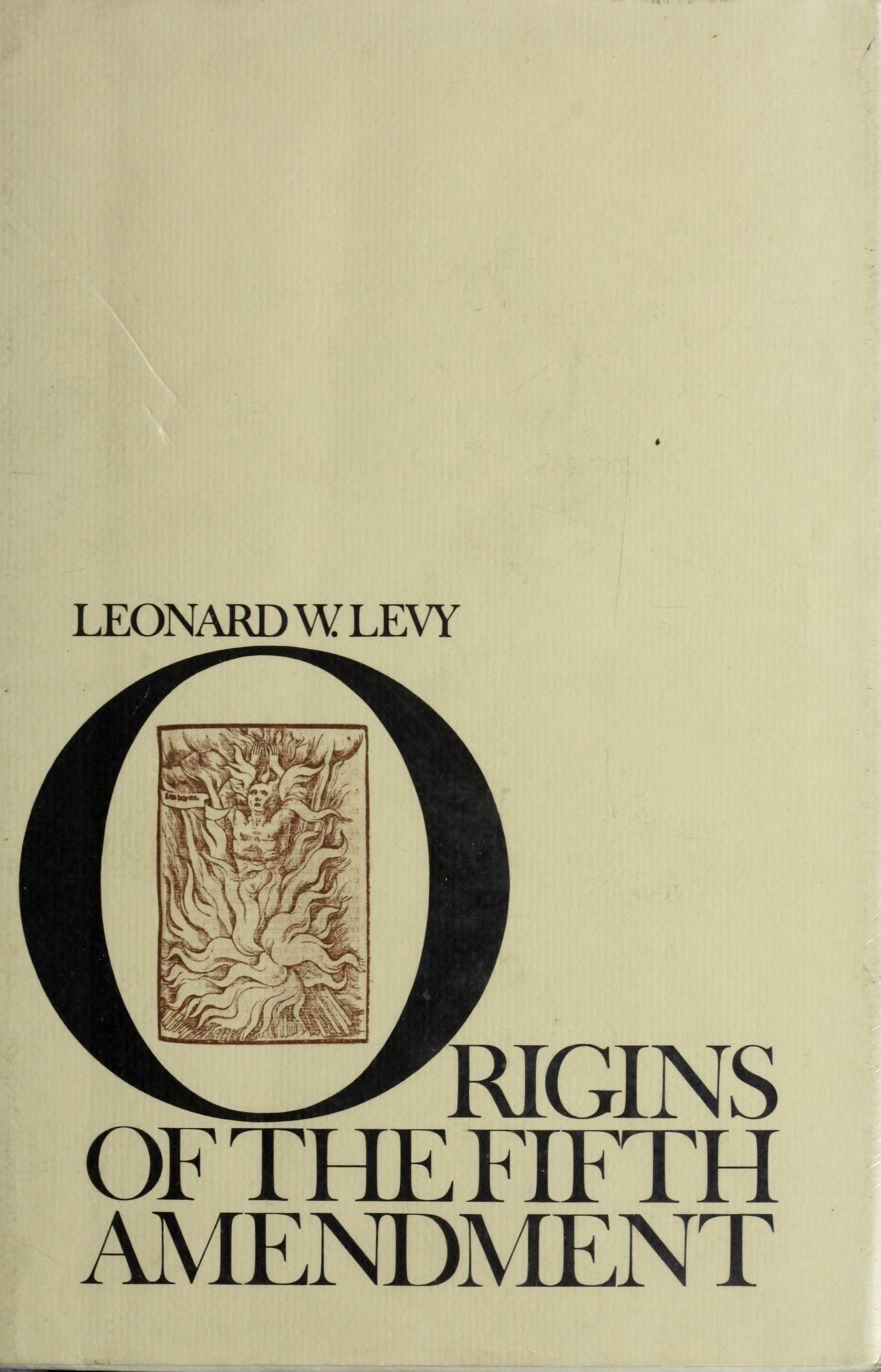Hardcover, 573 pages
English language
Published 1968 by Oxford University Press.

Hardcover, 573 pages
English language
Published 1968 by Oxford University Press.
No part of the Constitution has aroused greater public controversy in recent years than the Fifth Amendment's clause on the right against self-incrimination. During the McCarthy hearings in the 1950's, this clause —one of the English-speaking people's basic safeguards against arbitrary rule—became a subject of primary concern and a major issue between liberals and conservatives; yet no clause has been so neglected by historians. Professor Levy, a distinguished constitutional historian, remedies this neglect by investigating the origins of the right that has become synonymous with the Fifth Amendment itself.
The story—which encompasses some of the basic legal problems of English society —starts even before Magna Carta, with the beginnings of the accusatorial system of justice in England: it was in connection with the struggle for this right that Magna Carta first became the symbol of individual liberty. Professor Levy examines the English back-ground of that struggle, concentrating upon the Tudor …
No part of the Constitution has aroused greater public controversy in recent years than the Fifth Amendment's clause on the right against self-incrimination. During the McCarthy hearings in the 1950's, this clause —one of the English-speaking people's basic safeguards against arbitrary rule—became a subject of primary concern and a major issue between liberals and conservatives; yet no clause has been so neglected by historians. Professor Levy, a distinguished constitutional historian, remedies this neglect by investigating the origins of the right that has become synonymous with the Fifth Amendment itself.
The story—which encompasses some of the basic legal problems of English society —starts even before Magna Carta, with the beginnings of the accusatorial system of justice in England: it was in connection with the struggle for this right that Magna Carta first became the symbol of individual liberty. Professor Levy examines the English back-ground of that struggle, concentrating upon the Tudor and early Stuart period. He tells how Englishmen fought against arbitrary court procedures, especially those in the Star Chamber and High Commission; and he shows how the controversial issues that racked England in the sixteenth and seventeenth centuries reflected conflicts between Catholics and Protestants, Anglicans and Puritans, King and Parliament, arbitrary rule and constitutional government, inquisitorial and accusatory procedures, and persecution and freedom of conscience. He traces the echoes of these conflicts in the American colonies before the Revolution, and follows the details of the establishment of this right in one of the Amendments to the Constitution.